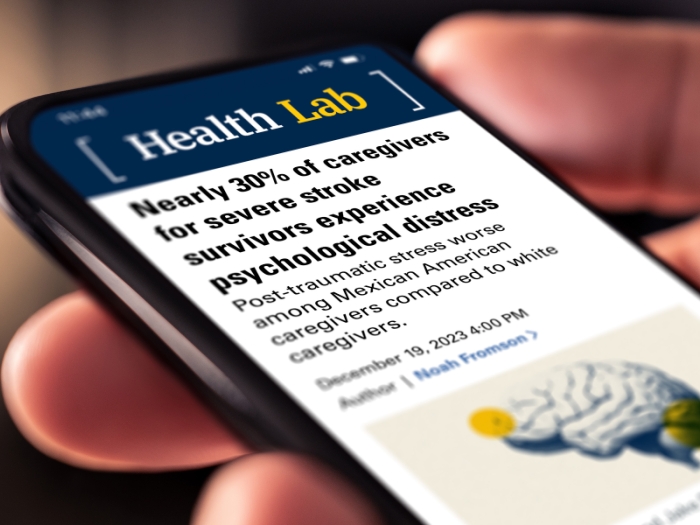As frigid temperatures and snow hit, an emergency medicine physician offers tips to protect you and your loved ones
2:00 PM
Author |

From snow-covered expressways to icy sidewalks, winter weather can bring a host of problems.
"When the weather turns cold, slips and falls, car accidents and even frostbite or hypothermia become more common," says Brad Uren, M.D., an assistant professor of emergency medicine at Michigan Medicine.
LISTEN UP: Add the new Michigan Medicine News Break to your Alexa-enabled device, or subscribe to our daily audio updates on iTunes, Google Play and Stitcher.
And with a winter storm set to unleash near-historic low temperatures on the Midwest and Northeast this week, there's plenty of reason to take caution.
But common dangers of the season can occur during a milder freeze, too.
"Working in an emergency department in the Midwest and growing up in the Upper Peninsula of Michigan, I know how dangerous cold weather can be," says Uren.
He offered some easy safety tips for avoiding common seasonal injuries.
Protect yourself against frostbite
Frostbite occurs when skin and underlying tissue freeze after exposure to extreme cold. In single-digit and below-freezing temperatures, it can take just minutes to suffer frostbite.
Frostbitten skin looks pale or blue and feels cold, numb and stiff or rubbery to the touch, and it needs proper care.
MORE FROM MICHIGAN: Sign up for our weekly newsletter
To protect yourself, cover all skin that could be susceptible to the cold.
"Help protect the very young and older adults — and watch out for those medically frail or those with mental health challenges that may need extra help to protect themselves from the extreme cold," Uren says.
Check the weather and dress in layers before going outside.
Slow down to avoid slips and falls
People in a hurry on ice and snow can end up in the emergency department with severe injuries.
Uren's advice? Don't be in a rush.
"Plan a few extra minutes in your commute so you are not rushing over slick surfaces," he says.
Other preventive measures can help sidestep an injury.
Wear footwear that is not only insulated but can also provide traction. Use salt or other ice-melting products to clear your sidewalks and driveways so neighbors and pedestrians can walk safely.
Use shovels and snowblowers safely
When shoveling, take it easy.
"If you have any concerns about your health, check with your doctor to ensure your heart is healthy enough for the exercise that comes with snow shoveling," Uren says.
SEE ALSO: How to Avoid a Heart Attack While Shoveling Snow
Avoid shoveling after large meals, which can increase the workload on your heart. Take breaks as needed and don't move too much at once, especially when snow is wet and heavy.
If you use a snowblower, read the manual and familiarize yourself with the product before use, Uren says, noting that federal data show more than 5,700 injuries from snowblowers occur each year.
"Make sure all of the safety devices are working as they should — and never attempt to clear a stuck snowblower with your hand," he adds.
Many manufacturers include a device to clear jams. Be sure the machine is off, and stand in a place where you will not be injured if leftover tension in the machine causes the auger to move suddenly when the jam is cleared.
Drive with caution
When driving in significant snow, plan extra time to arrive at your destination.
"Four-wheel-drive vehicles only help you gain traction; they do not help you stop in the event of slippery roads," Uren says. "Slowing down and always being sure to drive at a speed where you can see and react safely to the road in front of you will help get you to your destination safely."
Keep a first-aid kit, emergency blanket and flashlight in your vehicle. Travel with a set of good winter boots, a hat and gloves in the vehicle, too.
If you are headed to a remote area or anticipate a longer delay, it's a good idea to pack food and water. Always make sure your cellphone is charged.
And, no matter the weather, never drink and drive.

Explore a variety of healthcare news & stories by visiting the Health Lab home page for more articles.

Department of Communication at Michigan Medicine
Want top health & research news weekly? Sign up for Health Lab’s newsletters today!





